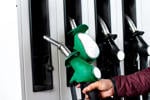Vehicle diagnostic information transmitted via the latest telematics systems is playing a key role in helping fleet operators stay out of the red despite record high fuel costs.
Research has also highlighted worker health and safety as another major reason why telematics and vehicle tracking equipment is now regarded as an essential tool for fleet managers.
In addition, survey results revealing that fleet drivers are more likely than other motorists to be involved in road accidents have become a further crucial factor driving the uptake of technology that cuts costs and increases productivity, claims Trimble MRM managing director Andrew Yeoman.
“Accurate information on driver behaviour in terms of speed, driver style, harsh braking or acceleration gives fleet managers a real insight into who may need additional training,” he says.
“By identifying those who need to make changes, managers can improve the driving behaviour of the minority rather than taking the broad-brush approach that can be time-consuming and expensive. And as well as the moral and legal responsibility, preventing accidents also mitigates other financial consequences such as repair costs, leasing charges, higher insurance premiums and loss of work.
“Telematics is rarely about tracking an individual - it’s about the bigger picture of helping increase productivity while lowering costs and being safe. With so many companies suffering currently, it is imperative that they run at their most efficient with every employee doing their bit to make sure they operate at the lowest cost. Telematics is simply the tool to help achieve that goal,” he says.
Facilities management company Romec boosted the safety of mobile workers by fitting tracking equipment to 1,000 service vehicles.
“This move was part of worker health and safety measures and has already cut road accidents involving staff by 28%, reduced speeding by 82% and lowered fines by 26%,” claims Masternaught managing director Martin Port.
“Choosing the right solution for your business depends on ease of use, avoiding additional IT costs, comprehensive reporting, close management of drivers and crime prevention,” he adds.
Analysts predict the industry is set for rapid expansion as companies re-evaluate costs in the wake of the recession.
“Companies are recognising that higher workforce efficiency offers greater savings than simply improving vehicle utilisation, important though that is. Increased productivity leads to increased profits.
“Telematics maximises profitability by reducing wasted journey time and fuel through optimal routing, increases productivity through efficient job allocation, boosts customer service by providing accurate arrival times, uses automatic logging to comply with legislation and allows for improved eco driver training,” says TomTom Work UK sales manager Jeremy Gould.
Do the savings justify the investment? “Integration of any of our services has proved to help save company money. Research shows fuel consumption can be cut by up to 30% by systems that include real-time updates to direct vehicles around traffic congestion.
“And monitoring the whereabouts of drivers has reduced overtime costs by an average 15%, cut unauthorised vehicle usage by 12% and improved productivity by 12%.
Many companies have already carried out the basics of streamlining the business and staying profitable, but now is the time to increase productivity, lower operational costs and improve margins. For a relatively low cost per vehicle, the return on investment can be significant and immediate,” says Traficmaster sales and marketing director John Lawrence.
“There’s no substitute for carrying out a trial over a significant number of vehicles. That also provides an opportunity to assess the supplier,” advises Quartix managing director Andy Walters.
The success of tracking depends on the people involved and the way information is used, so management buy-in and staff confidence are essential and openness and consultation avoid ‘big brother’ accusations, believes TrackCompare business development manager Simon Taylor.
“Traditionally, tracking was the preserve of HGV and high fuel users because return on investment was easy to achieve, but now the cost of the technology and data transmission has fallen, I don’t think there’s a fleet anywhere that wouldn’t benefit from tracking,” he says.
By Maurice Glover
Click Here to see how one company improved fleet efficiency and reduced its CO2 emissions by installing telematics systems in its vehicles.

















Login to comment
Comments
No comments have been made yet.